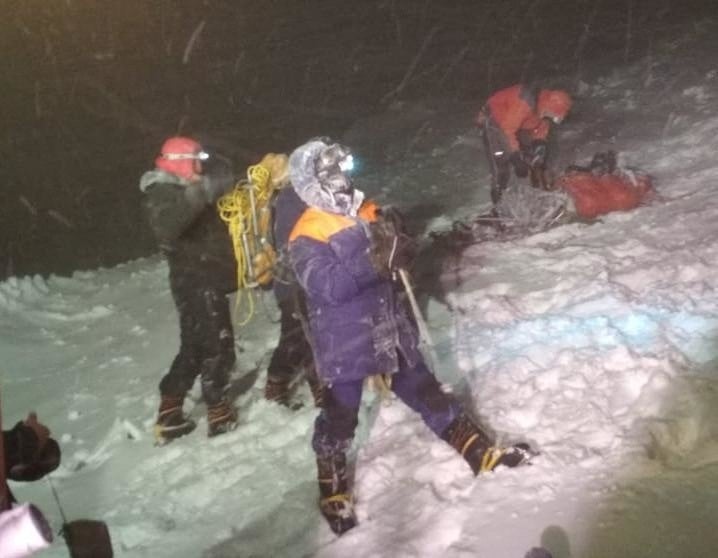Five climbers die in snowstorm on Europe’s highest mountain
The other 14 members of the climbing party were rescued during high winds, low visibility and sub-zero temperatures

Your support helps us to tell the story
From reproductive rights to climate change to Big Tech, The Independent is on the ground when the story is developing. Whether it's investigating the financials of Elon Musk's pro-Trump PAC or producing our latest documentary, 'The A Word', which shines a light on the American women fighting for reproductive rights, we know how important it is to parse out the facts from the messaging.
At such a critical moment in US history, we need reporters on the ground. Your donation allows us to keep sending journalists to speak to both sides of the story.
The Independent is trusted by Americans across the entire political spectrum. And unlike many other quality news outlets, we choose not to lock Americans out of our reporting and analysis with paywalls. We believe quality journalism should be available to everyone, paid for by those who can afford it.
Your support makes all the difference.Five mountain climbers have died after getting caught in a snowstorm on the highest mountain in Europe, Russia’s Mount Elbrus.
Their deaths were confirmed by Russia’s regional emergency ministry, which said that 14 other members of the climbing party were rescued from the mountain’s peak, during high winds, low visibility and temperatures of -20C.
The climbers sent out a call for help just after 5pm local time on Thursday at an altitude of over 16,000ft.
Of those rescued, 11 were taken to hospital with injuries.
Denis Alimov, who helped organise the guided climb, told TASS news agency about the horrors the group endured.
On the ascent, one of the women in the party felt ill and turned back with one of the guides, he said, dying later in his arms.
The rest of the group continued to summit, he said.
But on the way down, an “unprecedented storm” struck. Under these “most difficult conditions”, another climber broke his leg, Mr Alimov said.
This slowed the group down, and forced them to split into three groups, based on speed.
“As they descended, two more people died in one of the groups,” he said. “But the decision to split up was the right one, otherwise there might have been more casualties.”
He added that guides suffered frostbite and other injuries.
Two of those in the group froze to death, while two others lost consciousness and died as they were brought down the mountain, Agence France-Presse reported.
Mount Elbrus, a dormant volcano, is located in the western Caucasus Mountains. It has an elevation of 18,510ft above sea level and is the tenth-most prominent peak in the world.
A cable car system allows visitors to reach heights of 12,500ft with relative ease. From that point, those wishing to reach the summit can do so from a variety of routes.
Although not considered a technically difficult climb, the route is dangerous because of the elevation and strong, gusty winds. Boris Tilov, the former head of the Elbrus rescue service, said that on average, between 15 and 30 people die every year on the mountain, mostly due to unorganised trips of under-prepared people attempting the climb.
Join our commenting forum
Join thought-provoking conversations, follow other Independent readers and see their replies
Comments